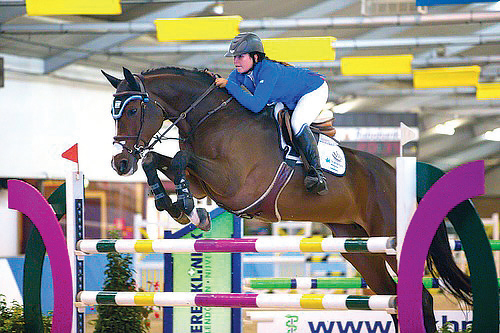
Recent polls show that Israeli women earn 25% less than their male counterparts. The situation is not much better in the United States, where working women earn just 77¢ for every dollar men earn. This unjust reality translates into short- and long-term economic consequences for the female members of the workforce, including less money to meet their everyday needs as well as their inability to save adequate funds for retirement. But more important than any financial figure is the message this kind of mistreatment sends to women of every age. In the 21st century, our society is telling women that they are simply not as valuable as men.
I consider myself quite fortunate in having never felt the presence of the infamous “glass ceiling.” My secret is a life centered on competitive sports.
In 2007, the United Nations commissioned a report, Women 2000 and Beyond: Women, Gender Equality and Sport, that discussed this very formula. The report explained that the relationship between gender equality and sport is not solely about achieving equality in women’s participation and treatment within sports, but also about harnessing the potential of sport for social empowerment of women and girls.
Sport offers a valuable channel to strengthen women’s capabilities, and their participation can challenge gender stereotypes and break down entrenched discriminatory attitudes and behaviors.
When I began training for equestrian competitions, the stereotype that girls wanted to play with ponies—rather than horses—was pervasive (due in large part to the incredible popularity of “My Little Pony” toys). But once I learned how much strength and skill was required to control a horse, it became clear that horses were definitely not ponies and that I wasn’t going to be riding sidesaddle like a princess in the movies. And that was okay with me. I was hooked on the challenge.
As I began competing, I quickly learned that the only way to evaluate my peers was by the connections they had developed with their horses. There are no male and female divisions in equestrian sports. There is no such thing as someone being “pretty good for a girl.” Now, that is not to say there isn’t a strength differential between the genders. When I train, I need to compensate for less upper body strength, less lower leg strength, and shorter legs than my male counterparts. In show jumping, male competitors often talk about being able to use their muscle to “lift” their horses up. Because female riders cannot do the same, we must concentrate on developing the proper technique in order to compete against our male peers. The subtleties of the sport become that much more important when you are competing as a woman.
Nevertheless, the reality is that equestrian is the only Olympic sport in which men and women compete alongside each other on entirely equal terms. It is for this reason that I am involved in a movement that is dedicated to the development of a robust equestrian culture in Israel. In addition to the many societal and economic benefits of such a culture, it is important to me that young girls and women of all ages throughout Israel become empowered through equestrian sports. It is one thing to tell a girl that she can be “as good as the boys.” It is quite another to make her feel that she is. When you first put a young girl on a horse, she looks so small and fragile. But as she begins to turn the horse and coax it into walking, she sits up straighter and calls out the commands a little louder. Suddenly, the rider displays an air of confidence, and her presence becomes just as crucial as the horse’s.
The empowerment gained through equestrian sports doesn’t end there. Learning to guide a stubborn animal teaches the merits of patience and develops core management skills, and the communication system created between rider and horse boosts overall creativity and teaches the rider how to build bridges and push herself beyond her comfort zone.
But if you don’t see yourself (or your daughter) mounting a horse anytime soon, don’t despair. Just make sure to find a sport that does suit you. Participation in sports—all sports—increases self-esteem and self-confidence and teaches important skills and values such as teamwork, negotiation, leadership, communication, and respect for others. The acquisition of new interpersonal networks helps young women develop a sense of identity and gives them access to new opportunities. Sport can also serve as a vehicle to improve leadership roles and participation in decision-making, which empowers women and girls to become leaders in all areas of business and community life.
Thanks to Israel’s addiction to innovation and its constant push for upward mobility, it is the ideal place to start a revolution, specifically one that challenges gender stereotypes and breaks down entrenched discriminatory attitudes and behaviors. This is one of the main reasons why I chose to ride for Israel in the first place, and how after only four short years, I am riding on the Israeli Equestrian Team, the first-ever competitive Israeli team in equestrian sports.
Theodor Herzl, the “Visionary of the State of Israel,” famously stated, “If you will it, it is no dream.” So let’s dream big for women across Israel and around the world, and through competitive sports, provide them with the tools they need to not only rise above that great big glass ceiling, but to shatter it beyond recognition.
Danielle Goldstein is an award-winning Grand Prix show jumper and a founding member of the Israeli Equestrian Team. She manages Starwyn Farms, a jumper facility located in Wellington, Fla.
By Danielle Goldstein/JNS.org










